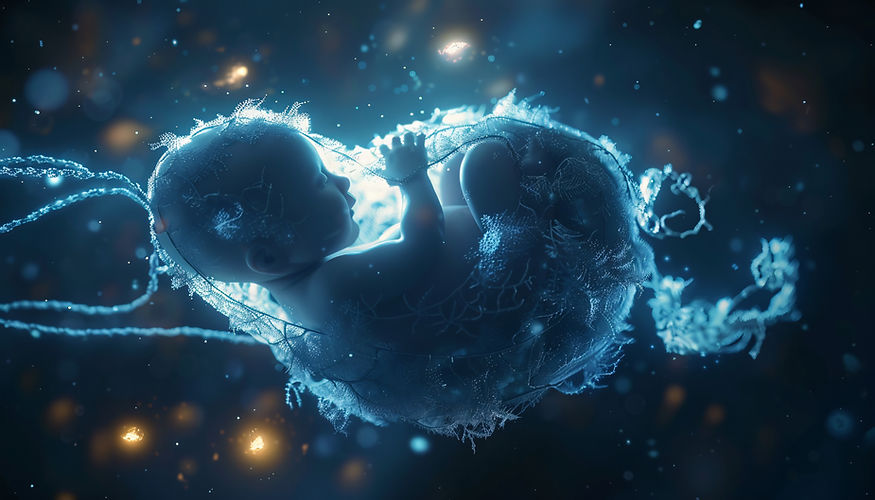



Embryo-mother crosstalk:
From monologue to dialogue
Biological communication between the embryo and its mother is a single, continuous process that involves multiple bidirectional signals throughout the gestation period. This molecular dialogue is characterized by a biological exchange of proteins, extracellular vesicles and microRNAs that underlies such critical processes as the journey of the embryo to the uterus, implantation, placental formation, organogenesis, fetal development and even the time of delivery.
Currently, the knowledge of the set of proteins or proteome characteristic of the period from fertilization to implantation is very poor and is based on experimental models in vitro, whose main limitation is the lack of the counterpart (the mother). These models recreate a monologue rather than a true mother-embryo molecular dialogue.

EMCT

MELISA Institute has developed an in vivo research platform to help us decipher the proteome that characterizes the pre-implantation window. From a preconception cohort, we collect and store biological samples throughout the fertile cycle of women seeking to become pregnant. In these samples, through the integration of various technologies such as mass spectrometry and artificial intelligence, we seek to unveil the proteome that uniquely distinguishes cycles with the presence of an embryo from those cycles without an embryo.
The first critical event of the mother-embryo interaction is the one that occurs in the first week of the embryo's life, previous to implantation. Through hormones, cytokines, chemokines, extracellular vesicles and miRNA, among others, signals are produced that allow the implantation of the blastocyst in the endometrium. Without this step, the embryo cannot continue its development and an early abortion occurs.


Our research is done using biological samples taken in the ultra-early period of natural pregnancies; the integration of data provided by transcriptomics, proteomics and metabolomics, gathered under artificial intelligence algorithms, allow us a more complete and accurate analysis of maternal-embryonic interactions at the beginning of gestation.


EARLY-PREG Cohort
EARLY-PREG is a preconception, longitudinal, bidirectional, and counterfactual cohort study that aims to research maternal–embryonic communication during the first two weeks after conception through a biorepository of biological fluids and tissues.
We will characterize the molecular communication between the embryo and the mother through mass spectrometry-based proteomic workflows for different fluids and tissues of the EARLY-PREG biorepository. Currently, the study is comparing the proteome of CVF samples from participants who conceived and their counterfactual non-conception cycles to characterize the signature of early pregnancy in this fluid.


We have designed a bidirectional cohort study to obtain samples of different biological fluids in the first week after fertilization. We follow a group of women who intend to become pregnant and take samples previous to ovulation until the end of the cycle.





Biobank
In our clinical protocol, samples of cervicovaginal fluid, blood, urine and saliva are collected day after day. All samples are frozen at -80 °C, constituting one of the most complete biobanks of biological samples from preconceptional cohorts.
After detecting a pregnancy, the process of defrosting and proteomic analysis begins, seeking to know processes, interactions and markers of critical events.


